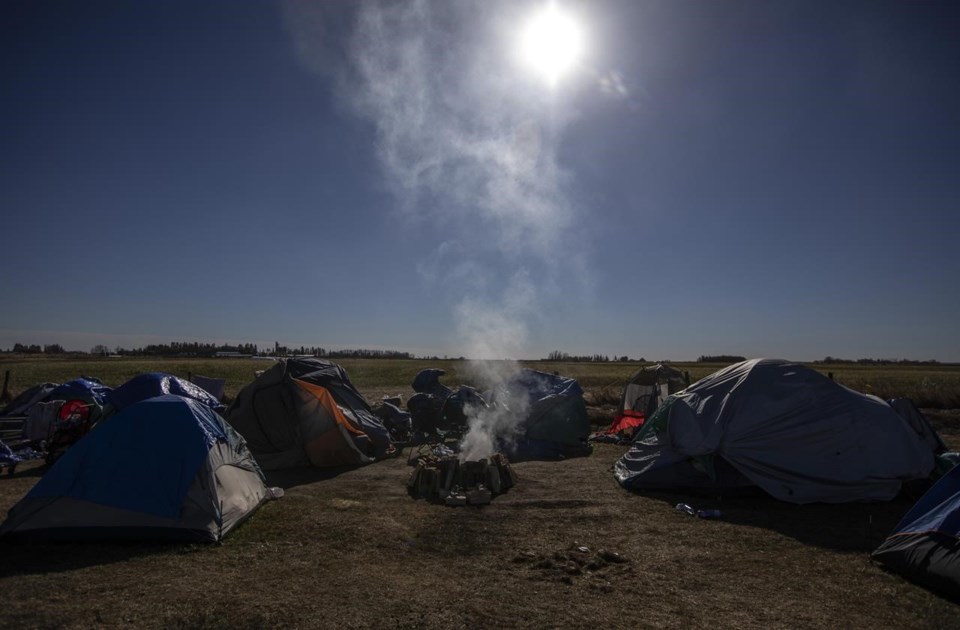WETASKIWIN, Alta. — A central Alberta city has taken another step to secure warming shelters for vulnerable individuals living in tents in an open field, but its mayor says they need some help.
Up to 60 people have been sleeping in a homeless camp in Wetaskiwin, southeast of Edmonton, since August after the city closed its only overnight shelter.
The site has been described as "worse than a refugee camp." Health-service providers have identified numerous risks, including inadequate sources of warmth, shelter, food and safety.
At a special city council meeting Friday, an additional $35,000 was approved on top of $150,000 in federal grants to pay for emergency warming trailers until the end of March 2022.
Paul Edginton, general manager of community and protective services, said the city is also working with a proposed shelter operator, which is in talks with the government of Alberta.
"At this point in time, they are prepared to come to town," he said. "They are ramping up. They're doing everything on their end to be ready to come on Nov. 29, first week of December.
"Operational funding needs to come through before we could open the trailers."
Wetaskiwin Mayor Tyler Gandam said he will try to find funding, but added that the province needs to step up.
"I don't think that the vulnerable population can wait. You hear crickets when it comes time to actually put pen to paper and secure funding. So step up or shut up. I'm done," he said Friday.
"I'm extremely, extremely frustrated and disappointed in the lack of support from other agencies."
Edginton said the chances of the proposed shelter operator not coming to Wetaskiwin are low, but he noted there could be other city costs — including fencing, increased security and insurance for the trailers.
Alberta Health Services has a temporary contract with a local non-profit to ensure there is access to drinking water, food and firewood for the homeless at the camp until a shelter space is secured.
The partnership will also support transportation to medical appointments.
This report by The Canadian Press was first published Nov. 12, 2021.
Bill Graveland, The Canadian Press



